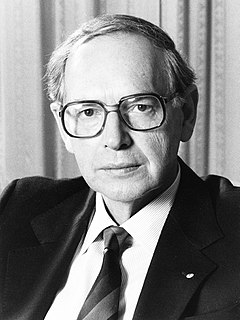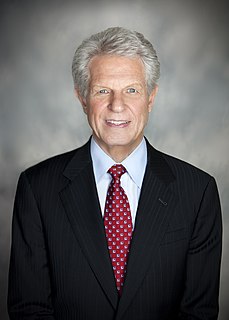A Quote by Elisabeth Elliot
Loneliness is a required course for leadership.
Quote Topics
Related Quotes
We never used to blink at taking a leadership role in the world. And we understood leadership often required something other than drones and bombs. We accepted global leadership not just for humanitarian reasons, but also because it was in our own best interest. We knew we couldn't isolate ourselves from trouble. There was no place to hide.
Leadership can't be claimed like luggage at the airport. Leadership can't be inherited, even though you may inherit a leadership position. And leadership can't be given as a gift - even if you've been blessed with an abundance of leadership skills to share with someone else. Leadership must be earned by mastering a defined set of skills and by working with others to achieve common goals.
Solitude is a condition of peace that stands in direct opposition to loneliness. Loneliness is like sitting in an empty room and being aware of the space around you. It is a condition of separateness. Solitude is becoming one with the space around you. It is a condition of union. loneliness is small, solitude is large. loneliness closes in around you; solitude expands toward the infinite. loneliness has its roots in words, in an internal conversation that nodbody answers; solitude has it's roots in the great silence of eternity.
Leadership is scarce because few people are willing to go through the discomfort required to lead. This scarcity makes leadership valuable...It's uncomfortable to stand up in front of strangers. It's uncomfortable to propose an idea that might fail. It's uncomfortable to challenge the status quo. It's uncomfortable to resist the urge to settle...If you're not uncomfortable in your work as a leader, it's almost certain you're not reaching your potential as a leader.


































